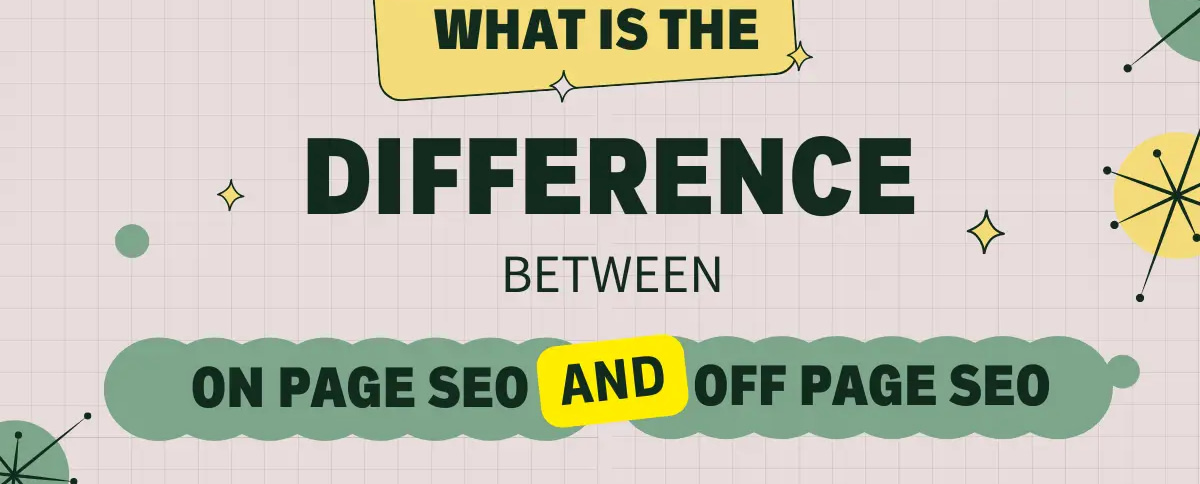Search Engine Optimization (SEO) is an integral part of any successful digital marketing strategy. It encompasses a multitude of techniques aimed at improving a website’s visibility and ranking in search engine results pages (SERPs). Two primary pillars of SEO are On-Page SEO and Off-Page SEO. In this blog, we will explore the key differences between these two approaches and understand their individual significance in optimizing websites for search engines.
On-Page SEO
On-Page SEO refers to the optimization techniques employed directly on the website itself. It involves various factors that influence how search engines perceive and rank a particular page.
Let’s delve into some essential elements of On-Page SEO
Content Optimization
High-quality, relevant, and engaging content is crucial for effective On-Page SEO. Optimizing the content includes using appropriate keywords, incorporating heading tags, optimizing meta tags, and ensuring proper keyword density.
Title Tags and Meta Descriptions
Title tags and meta descriptions are HTML elements that provide concise summaries of a webpage’s content. Optimizing them with relevant keywords and compelling language can improve click-through rates (CTR) and overall visibility in search results.
URL Structure
Creating descriptive and keyword-rich URLs helps search engines understand the page’s content and boosts its visibility. A clear URL structure also aids in user navigation and improves the overall user experience (UX).
Internal Linking
Interlinking relevant pages within a website helps search engines understand the site’s hierarchy and improves the overall crawlability. It also enhances user navigation and encourages visitors to explore more content.
Page Load Speed
The loading speed of a webpage plays a vital role in both user experience and search engine rankings. Optimizing images, reducing server response time, and leveraging browser caching are some techniques used to improve page load speed.
Off-Page SEO
While On-Page SEO focuses on optimizing the website’s elements, Off-Page SEO aims to enhance a website’s reputation and authority through external factors. Off-Page SEO techniques are primarily focused on building high-quality backlinks and establishing a positive online presence. Here are some essential aspects of Off-Page SEO:
Link Building
Building high-quality backlinks from authoritative and relevant websites is a crucial off-page SEO technique. These backlinks signal to search engines that your website is trustworthy and worthy of higher rankings.
Social Media Marketing
Engaging in social media platforms allows businesses to reach a wider audience, improve brand visibility, and build relationships with potential customers. Sharing valuable content on social media platforms can lead to increased website traffic and improved rankings.
Online Reputation Management
Maintaining a positive online reputation is vital for Off-Page SEO. Monitoring and responding to online reviews and comments, managing customer feedback, and actively participating in industry forums and discussions contribute to a strong reputation.
Influencer Marketing
Collaborating with influential individuals or industry experts can help expand your brand’s reach and credibility. Influencer partnerships can lead to increased brand mentions, social media shares, and ultimately, improved organic search rankings.
Guest Blogging and Content Marketing
Publishing guest posts on reputable websites and creating valuable content that attracts backlinks and social shares are effective strategies for Off-Page SEO. Sharing expertise through informative articles establishes credibility and boosts visibility.
On-Page SEO and Off-Page SEO are both integral components of a comprehensive search engine optimization strategy. While On-Page SEO focuses on optimizing website elements such as content, meta tags, and internal linking, Off-Page SEO is concerned with building backlinks, enhancing online reputation, and expanding brand visibility through external factors.
